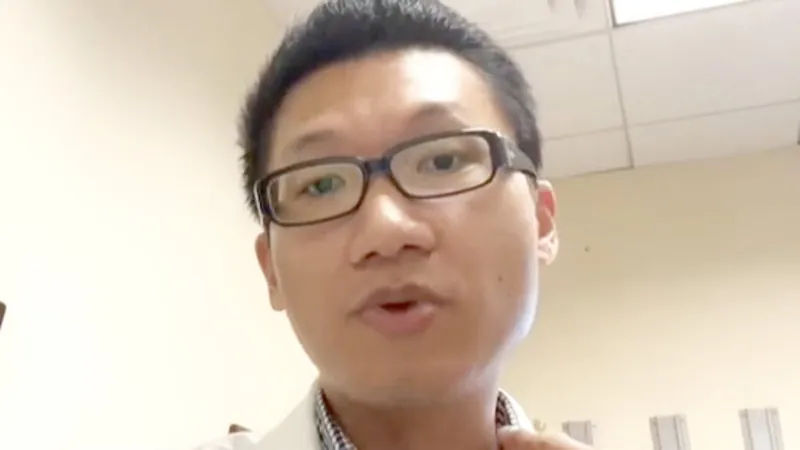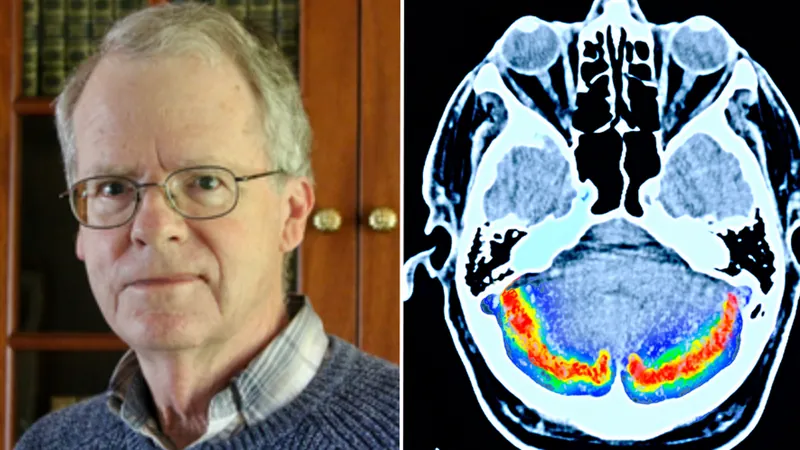
Neurologist Warns: 6 Everyday Habits That Could Cost You Your Brain Health!
2024-12-12
Author: Kai
Neurologist Warns: 6 Everyday Habits That Could Cost You Your Brain Health!
A prominent neurologist, Dr. Baibing Chen, has identified six everyday habits that he insists can significantly elevate the risks of serious health issues such as strokes, dementia, and even cancer. With the alarming rise in brain-related conditions, it’s critical to heed his advice.
In a pair of viral TikTok videos that have garnered over 3.7 million views, Dr. Chen, who is also known online as Dr. Bing, reveals what he personally avoids when it comes to his health.
1. Ditch the Chiropractor and Neck Cracking:
One of the most surprising habits Dr. Chen warns against is "forceful neck manipulations," which are commonly performed by chiropractors or can occur when individuals crack their own necks. This procedure can result in vertebral artery dissection, a potentially life-threatening condition where a tear in the artery can lead to a stroke. Dr. Chen states, "The risk is small but becomes significant if pre-existing conditions exist." Instead, he advocates for safer alternatives such as gentle stretching and physical therapy for neck pain relief.
2. Don’t Ignore Unusual Headaches:
Dr. Chen emphasizes the importance of paying attention to any headache that feels abnormal. Chronic headache sufferers may be tempted to dismiss new or different pain; however, this could signal serious neurological issues like bleeding or a tumor. Symptoms such as sudden, severe pain, personality changes, and pain that worsens with movement should prompt immediate medical attention.
3. Prioritize Sleep:
A lack of adequate sleep is another danger zone highlighted by Dr. Chen. Chronic sleep deprivation has been linked to an increased risk of dementia, as it impedes the brain's ability to clear beta-amyloid proteins. Dr. Chen recommends aiming for at least eight hours of quality sleep each night to maintain cognitive health.
4. Winter Caution: Beware of Space Heaters:
As we enter the winter months, Dr. Chen cautions against using space heaters, particularly gas-powered models, due to the risks they pose, including fire hazards and carbon monoxide poisoning. Carbon monoxide exposure can deprive the brain of necessary oxygen, which in turn increases dementia risks.
5. Stretch Before Winter Activities:
As the cold weather can mask the strain of physical exertion, Dr. Chen stresses the importance of stretching before engaging in any winter activity, such as shoveling snow. He recommends a thorough stretch lasting 5-10 minutes to avoid injuries from overexertion, which can lead to falls and head injuries.
6. Recognize Seasonal Affective Disorder (SAD):
Lastly, Dr. Chen urges everyone to be vigilant about Seasonal Affective Disorder, a type of depression triggered by the reduced daylight of winter months. This condition can have profound effects on cognitive and emotional health, leading to detrimental effects on concentration and motivation. He advocates for light therapy, regular exercise, and exposure to natural light to combat SAD.
In summary, as we navigate daily life, Dr. Chen's invaluable insights serve as a reminder to be proactive about our health. Making these simple adjustments can go a long way toward safeguarding our cognitive well-being and ensuring a healthier future.



 Brasil (PT)
Brasil (PT)
 Canada (EN)
Canada (EN)
 Chile (ES)
Chile (ES)
 España (ES)
España (ES)
 France (FR)
France (FR)
 Hong Kong (EN)
Hong Kong (EN)
 Italia (IT)
Italia (IT)
 日本 (JA)
日本 (JA)
 Magyarország (HU)
Magyarország (HU)
 Norge (NO)
Norge (NO)
 Polska (PL)
Polska (PL)
 Schweiz (DE)
Schweiz (DE)
 Singapore (EN)
Singapore (EN)
 Sverige (SV)
Sverige (SV)
 Suomi (FI)
Suomi (FI)
 Türkiye (TR)
Türkiye (TR)